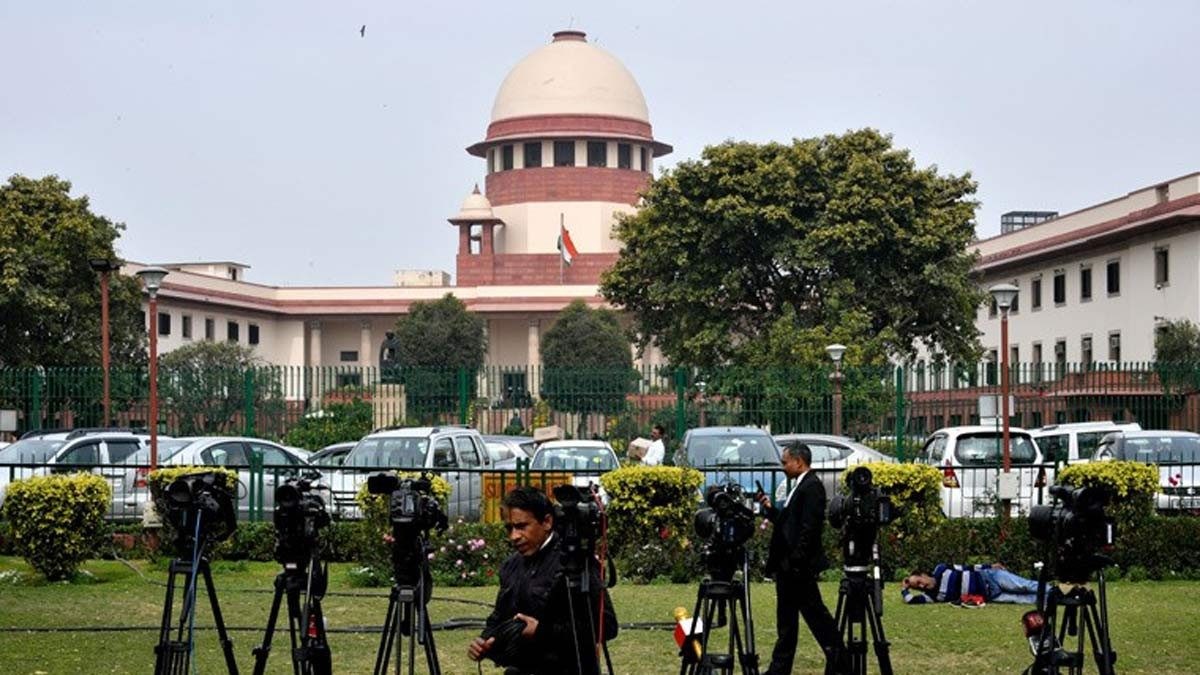SC to Decide Lokpal’s Authority Over High Court Judges
Why in the News?
The Supreme Court will examine whether High Court judges fall under the Lokpal and Lokayuktas Act, 2013, following complaints against a sitting judge. The ruling will clarify judicial accountability while ensuring protection from arbitrary investigations without CJI’s prior approval.
Highlights about the news:
- The Supreme Court (SC) will review whether High Court (HC) judges fall under Section 14 of the Lokpal and Lokayuktas Act, 2013.
- The case stems from the Lokpal’s decision to entertain two complaints against a sitting HC judge, accused of influencing a case.
- The issue raises concerns about judicial accountability while maintaining judicial independence.
Legal Precedents & Interpretation
- The 1991 Veeraswami vs Union of India judgment recognized HC and SC judges as public servants under the Prevention of Corruption Act, 1988.
- However, the ruling mandated prior approval from the Chief Justice of India (CJI) before initiating any investigation against a judge.
- The Lokpal Act, 2013, does not explicitly exclude judges from its jurisdiction, leading to the current legal debate.
Current Developments & SC’s Role
- A three-judge SC bench (Justices Bhushan R Gavai, Surya Kant, and Abhay S Oka) will hear the case.
- The Lokpal has sought guidance from the CJI before proceeding with the complaints.
- The SC’s intervention will determine whether HC judges can be investigated under the Lokpal Act, ensuring clarity on judicial accountability.
Lokpal and Lokayukta: Key Points
- Public Institutions established to investigate and prosecute corruption among public officials.
- Recommendation of ARC (1960s): Suggested creation of Lokpal (central) & Lokayukta (state) for addressing corruption.
- Origin of Ombudsman Concept: Introduced in Sweden (1809); proposed in India by Ashok Kumar Sen (1960s).
- Anna Hazare Movement (2011): Led to the Lokpal and Lokayukta Act, 2013.
Key Provisions of Lokpal & Lokayukta Act, 2013:
- Selection Committee: PM (Chairperson), Speaker, LoP, CJI/Judge & an eminent jurist.
- Jurisdiction: Includes PM, Ministers, MPs, Group A-D govt. employees.
- Composition: 1 Chairperson + max 8 members (50% judicial, 50% SC/ST/OBC/minorities/women).
- Investigation Power: Directs CBI & other agencies; covers foreign donations (Rs 10 lakh+ under FCRA, 2010).
Lokpal & Lokayukta (Amendment) Act, 2016:
- Selection Committee Change: Includes largest opposition party leader (if no official LoP).
- Asset Disclosure: Removes 30-day limit, reporting as per government guidelines.
- CVC Empowerment: Supervises CBI investigations under Prevention of Corruption Act, 1988.




